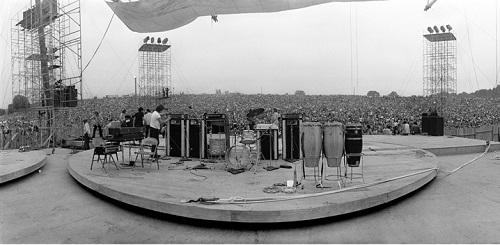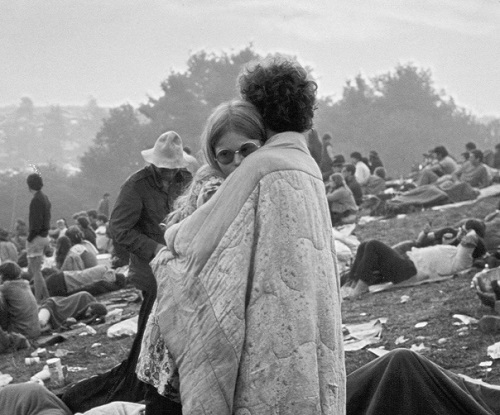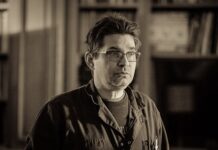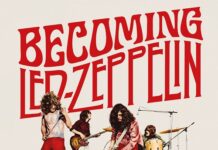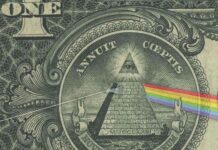Fifty years after the fact, and we’re still talking about Woodstock. It was on the verge of becoming a major disaster — more people than expected, inaccessible, no parking, food shortages, equipment issues, scheduling snafus, rain, mud, and more. Somehow, the spirit of collective humanity kept it together and showed the world that, in the words of Max Yasgur, whose farm was where Woodstock was staged, “a half million young people can get together and have three days of fun and music and have nothing but fun and music…”
Over the years, we’ve had the privilege of speaking to several prominent musicians who appeared at Woodstock. We neglected to bring it up during encounters with Graham Nash, Johnny Winter, Jorma Kaukonen, and Harry McCullough, who played guitar with the Grease Band and shares the split screen with Joe Cocker in the movie. However, we managed to corner a few other noteworthy subjects about their Woodstock experience and here’s what they had to say.
Leslie West (Guitarist & Vocalist, Mountain):
“We got on Saturday night, which was the nicest night of the weekend. And we went on just as it was getting dark. It was pretty scary.”
Was “For Yasgur’s Farm” inspired by the festival?
“It wasn’t originally called ‘Yasgur’s Farm,’ it was called ‘Who Am I But You and The Sun’ (the song’s first line). Felix Pappalardi changed the title and it worked.”
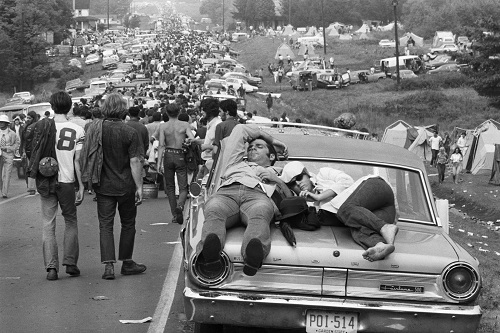
Edgar Winter:
“I played Woodstock with my brother Johnny and I loved the variety of the acts there.”
Jack Cassidy (Bassist, Jefferson Airplane):
“Basically, it was a couple days within a tour, but it became obvious that it was developing into something that no one would know where it would end up. People poured in and in — we knew all the people involved with it — but it’s really quite phenomenal to think about how it all worked out, with all these players playing off, and having their own crews, own tours and all that, and then you’ve got these days at typical Woodstock.
“Of course, logistical things happened to strand people inside or outside, or the weather format put a crimp in building the stage that would delay us. We were finally able to get into the venue, which was blocked off with all the access roads pretty much and they had cars everywhere and all that. I remember everybody traveled with a Ford LTD station wagon (laughs). That was the band wagon of choice as you went around the country. I remember trying to get ours in, scraping along other cars, trying to get in this narrow little cow paddy field. Once we finally got in there, we were there…unless you went in or out by helicopter or something. Once we got in there, things were delayed, we were supposed to go on at night and actually went on the next morning.
“I remember all the great performers — Richie Havens, Jimi Hendrix, the Who. All these people who really just did terrific. I think I actually remember Richie Havens — for one guy to be out there and captivate an audience like that, he really did an amazing job. There were just a lot of special times. You think back on it, you listen to it today and what not and it really does capture a certain something. It brings up an emotional aspect to the period in time…if you were there, you were there. If you weren’t, it’s a little distant. Anybody that was there, it will conjure up various memories, no matter how distorted (laughs).”
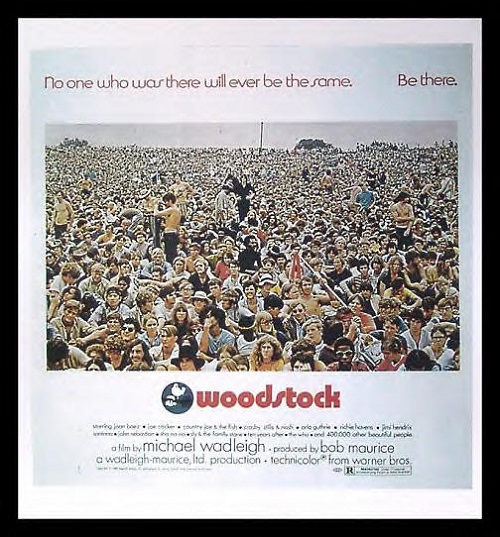
Gregg Rolie (Keyboardist & Vocalist, Santana):
“There were tuning problems because it was outside. The instruments back then didn’t have the tuning heads they do now that lock in. All the technology that’s going on is much more advanced, so you don’t end up with quite the same problems. But it really came together on ‘Soul Sacrifice.’ The band played well and it was energetic. We got put in the middle of that movie. If you were at Woodstock and in that movie, you had a career. And that’s pretty much what happened — it just kick-started the whole thing internationally. Our reputation preceded us playing Woodstock. We’d never been on the East coast, and that was our first trip.”
Leo Lyons (Bassist, Ten Years After):
“The long journey there, no food, the storm, working it out, not getting out to the place, not having a hotel — that’s what sticks in your mind. Obviously, it was a great event. It’s sometimes hard to differentiate between the movie and the event after all these years. That whole era was absolutely fantastic. People were into music. America, more so than other countries in Europe, had it. It was a movement, a political belief, an idealism, the way you dressed, what you listened to, free love, drugs, the whole package. And you were either one of us or one of them. There was no commercial for it until the movie came out and everything in the music business changed.
“You must remember that when we played Woodstock and left, I didn’t think anything about that festival, none of us did until we came back on a subsequent tour. By that time the press had really built it into something and people were asking us about Woodstock. When the movie came out, it became even more. To this day, it does represent, particular for younger people, an era in music where they really feel they would have liked to have been. If we hadn’t done Woodstock, I wouldn’t be talking to you now.”
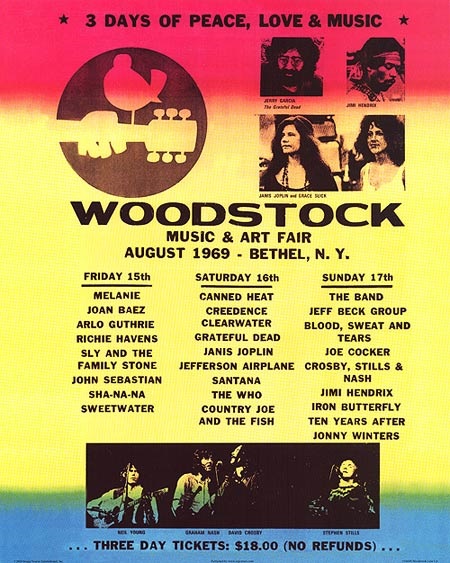
Bill Kreutzmann (Drummer, Grateful Dead):
“We had a really hard time playing there. Our sound guy was just crazy. The wiring wasn’t right. We were getting shocks off the microphones. It was just really hard. We had a lot of things that were facing us. But it was just good to be there and relate to people, off-stage even. It didn’t matter how the gig went particularly. It was the togetherness of everybody being there.
“In the Woodstock movie, you see Justin my son, who is now a filmmaker, being carried off by my wife at the time to the helicopter. He’s just this little bundle of joy in her arms. And it’s 1969.”
Alvin Lee (Guitarist & Vocalist, Ten Years After):
“We just went right on after the rain storm. There was a lot of humidity in the air and all the guitars went madly out of tune and we actually had to stop. The song was ‘Good Mornin’ Little School Girl’ and I had to stop it and say, ‘Sorry…excuse me…I want to get us in tune here.’ At that point, it was looking like a disaster. But as you see from the movie, we manage to get back on course.
“Nothing happened for a year. We continued to play the Fillmore and the Boston Tea Party…two to three-thousand seaters. It wasn’t until the movie came out that suddenly we found ourselves playing Houston Coliseum and Madison Square Garden.”
And what about the ominous watermelon that appears at the end of Ten Years After’s set?
“It just sort of rolled on. I didn’t see where it came from. It just rolled onto the stage. I don’t know why or what was going through my mind. I just casually threw my guitar into the drum kit and picked up this watermelon (laughs). At all the gigs after the movie came out — we were playing big festivals and stuff like that — and (during) the last number, about 200 watermelons were all bobbing away in the audience. And by the end of the last number, the whole stage is covered in watermelon (laughs).”
